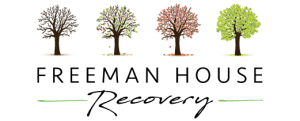Rehabs: Why the High Price tag?
People are always curious as to why rehabs are so expensive. Although many assume that rehab centres make their money from the treatment they provide, this couldn’t be further from the truth. Rehab centres may make most of their money from treatment and other aspects of the facilities, but it’s still crucial to know why rehabs are expensive to decide whether or not you can afford one.
Not All Addiction Treatment Centres Are Created Equal
Some programmes provide round-the-clock care for a flat fee, and others offer an outpatient service that allows patients to check-in at regular intervals. For example, one rehab facility might charge a higher amount for a month’s stay, while another might charge a substantially lower fee for a weekly visit. So why are some facilities so much more expensive than others? The short answer is staff costs—but there’s more to it than that.
The cost of addiction treatment centres is determined by a variety of factors, including location, size, accreditation status and staff credentials. The more personalised care you need—as opposed to basic crisis intervention—the higher your bill is likely to be. If you require medical detox or specialised counselling for your eating disorder or mental health problem, that could also drive up your cost.
In South Africa, some addiction treatment centres are affiliated with hospitals or clinics and offer a variety of medical services in addition to addiction care. If you’re seeking treatment for an eating disorder or mental health problem in addition to drug or alcohol abuse, you may be able to get everything you need at one facility. This is often more convenient than travelling between different locations for different types of care.
Some addiction treatment centres are considered medical detox facilities, which means they provide medical supervision while you wean yourself off drugs or alcohol. This medical supervision is often accompanied by medication that can help ease withdrawal symptoms and prevent them from becoming dangerous.
Some addiction treatment centres specialise in a particular type of treatment or focus on helping patients overcome a specific addiction. For example, one facility might be specifically focused on helping patients with eating disorders, while another may work exclusively with adolescents struggling with substance abuse.
Addiction treatment centres are accredited by some outside organisations. Accreditation means that a facility has undergone an assessment and been found to meet certain standards, which assures you that you’re getting high-quality care. The types of accreditation vary from centre to centre. Some facilities are accredited by private organisations or associations while others are approved by national or provincial governments.
Lastly, you should consider facility size. Bigger isn’t always better, and a large centre doesn’t necessarily offer more personalised care than a smaller one. Some facilities specialise in treating patients who need more intensive services; for example, an eating disorder centre might only accept patients who are struggling with life-threatening conditions. But smaller facilities might feel more welcoming to those in recovery from drug or alcohol abuse because they can tailor their care to individual needs without offering excessive bells and whistles.
Healing Takes Time, Invest in Recovery
While rehab may be time-consuming and often costly, getting treated for a drug or alcohol addiction is one of the best investments you can make in your future health. Make sure you choose a treatment centre that fits your needs and has experience with treating your specific substance abuse issues. Be prepared to invest serious time into your recovery—at least three months at an intensive inpatient facility, followed by continued care in outpatient therapy and possibly group counselling.
Some people can stop abusing drugs or alcohol on their own, but support groups like Alcoholics Anonymous can help them avoid relapsing. Seeking counselling from a trained psychologist or psychiatrist can also make all of the difference when it comes to long-term recovery. Once you’ve finished detox and treatment, follow up with your doctor regularly for medication or other ongoing care as necessary.
The Case for South African Rehabs
The cost of treatment in South Africa is a fraction of what it would be in Europe or North America. For example, a one-month stay at a luxury drug rehab in Johannesburg can cost between €5 000 and €6 000 ($7 500 to $8 500), while a luxury drug rehab outside of Paris might cost more than 10 times that. The low cost of treatment in Africa can make it possible for addicts to receive longer, more thorough stays in high-quality facilities with experienced staff.
For people struggling with an addiction to drugs, like cocaine or heroin, quality of care is paramount. An effective treatment programme addresses all aspects of recovery—physical, psychological and emotional—and provides round-the-clock support to give patients every opportunity to succeed. South African rehab centres are staffed by professionals with years of experience treating addictions and guiding patients toward long-term recovery. Their expertise and extensive treatment resources translate into better outcomes for people seeking drug rehab in Cape Town.
Invest in Your Recovery at Freeman House Recovery
Freeman House Recovery is committed to providing effective rehab care to clients struggling with drug and alcohol addiction. Our multidisciplinary approach recognises that people are complex and that there is no one treatment for everyone. Located in Hartebeespoort, Gauteng in South Africa, our addiction recovery centre offers luxury treatment and premium care at an affordable price. Our rehab facility boasts some of the most luxurious amenities available for drug rehabilitation in South Africa. We take a personalised approach to our clients’ recoveries. To learn more about Freeman House Recovery, please contact us today!










